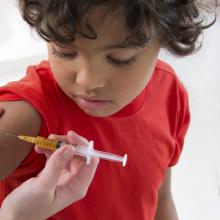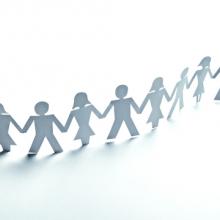vaccination
Azubuike Muodum, a Nigerian migrant living in Johannesburg, South Africa has not had his worst COVID-19 fears realized.
“When the [pandemic] started, I thought it was a disease that is going to kill everyone, more like an end-time plague,” Muodum told Sojourners in May.
Still, the last two years have had challenges. Muodum runs a small-scale restaurant in the central business district of Johannesburg, South Africa; he says the pandemic and subsequent lockdown created a “huge burden” for him and his restaurant. While countries like the United States begin returning to post-pandemic life, Muodum and others who emigrated to South Africa are facing the challenges of a still-spreading COVID-19.
I was listening to public radio in Boston recently when a public health expert half-jokingly noted that to find the hotspots of anti-vaccination fervor you could follow these steps:
1. Look at a map of where the Whole Foods are located.
2. Place a pin down where there is a Whole Foods.
3. Draw a 10-mile radius around the pin.
The point being — and this expert was only kidding a bit — that anti-vaccination is largely found among white, highly educated, wealthy advocates.
To me, what’s more obvious about this is when we are white, highly educated, and wealthy — like many of our mainline Protestant congregations — then the feelings of being in control and being free are so important that we are willing to risk the health and lives of others for the sake of being some sort of adjective like “natural” or “free.” Vaccines, designed to protect, become oddly reversed as a possible threat to freedom and “natural living.”
In reality, it is only our privilege that allows us to consider not vaccinating. The same sin that has deeply troubled our sexuality is also at the root of this crisis — the deep-seated belief that the highest good will be that we are free to do whatever we want to our bodies. This continuing belief in total freedom not only fails to take seriously human failings but continues to create crises wherever it goes.
When we view this world as a place where we can make decisions about our lives without regard to the impact to our neighbors, we have failed to heed Jesus’ own words that the greatest commandment is to love God and to love our neighbors as ourselves. We have failed to hear from the apostle Paul that our bodies are now God’s temples, and that they are now for the sake of the world.
The entirely preventable California measles outbreak has now sickened more than 70 people. With perhaps hundreds more exposed, the outbreak will likely continue.
As the disease spreads, experts will debate how we respond and what to do about the anti-vaccine movement that’s partly to blame for this mess. Likely, all we’ll agree on is better outreach to parents.
That’s not enough. Parents who do not vaccinate their children should go to jail.
In the year 2015, it is amazing that anyone in the United States contracts measles. The Centers for Disease Control and Prevention reports that the U.S. eliminated all native cases of measles in the year 2000. New cases generally occurred only among unvaccinated foreigners. Today, however, because of ignorant “anti-vaxxers,” the disease is staging a comeback.
Anti-vaxxers often claim the right not to put “poison” in their children’s bodies. That is ludicrous. A mountain of data has demonstrated that vaccines are safe and effective. Insisting otherwise is akin to believing that the moon landing was faked.
A more serious objection is that, like birth control, those with religious objections should be exempted. But, let’s remember that civil rights go both ways.
I've been having little arguments with myself all week: on one hand, like many good Americans, I believe in the idea and potential and creativity and wonder of individuals. I believe that the mind, for example, is a fathomless miracle. I believe that individuals have certain rights to freedom and self-determination.
Yet at the same time, everything that we are has been given us. We carry in our bodies the genes of thousands if not millions of ancestors; we have been brought to this moment — every moment — by people whose care and attention and patience have loved us imperfectly along. And, of course, by the God who has loved us into being.
Those of us who have the gift of being able to read and write often also have the ability to learn and to choose — to choose where to live and with whom, to choose what to think and to believe and to consume. And that, compared to how most people have lived and do live, is an almost unimaginable luxury. We can choose.



